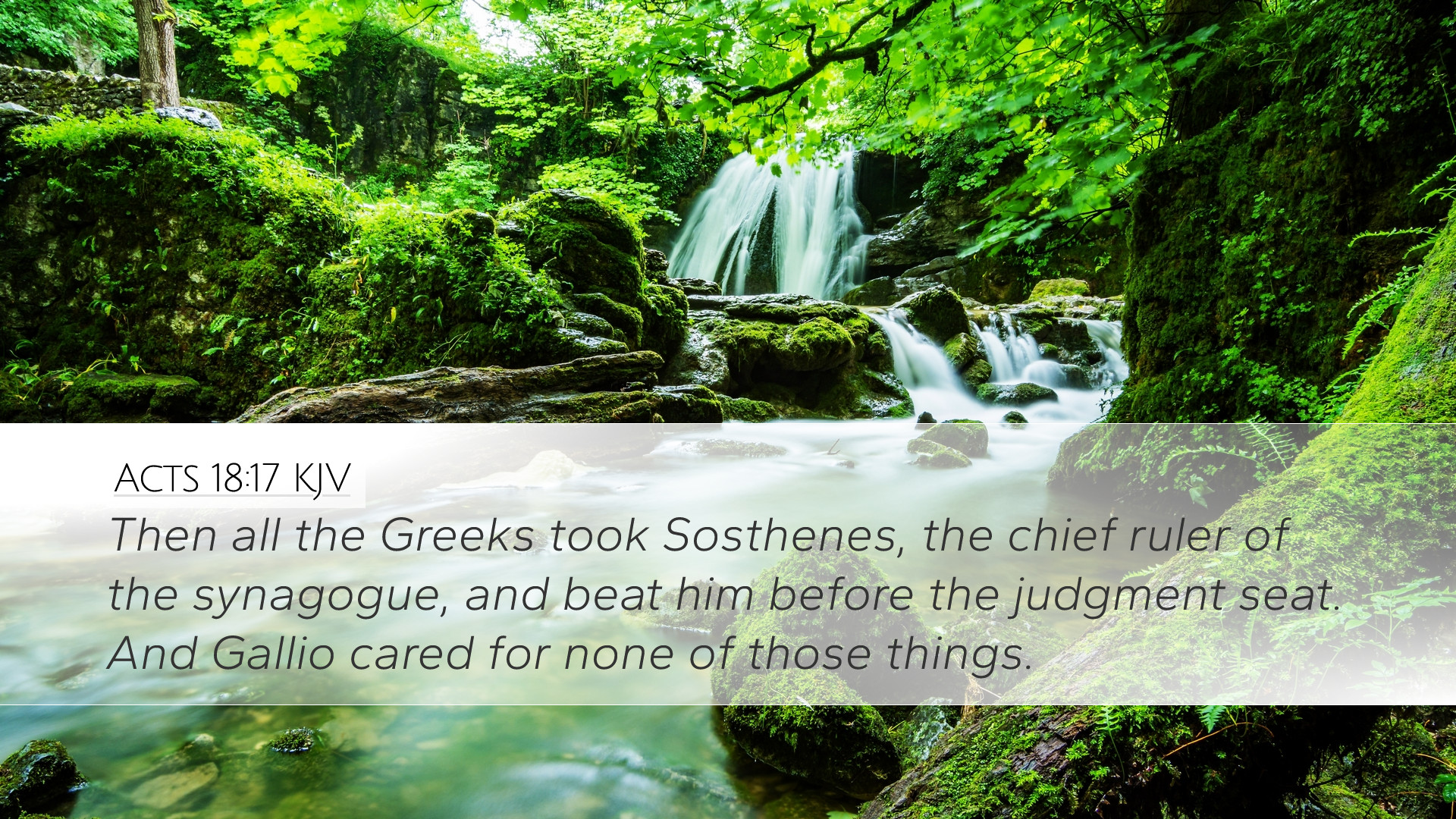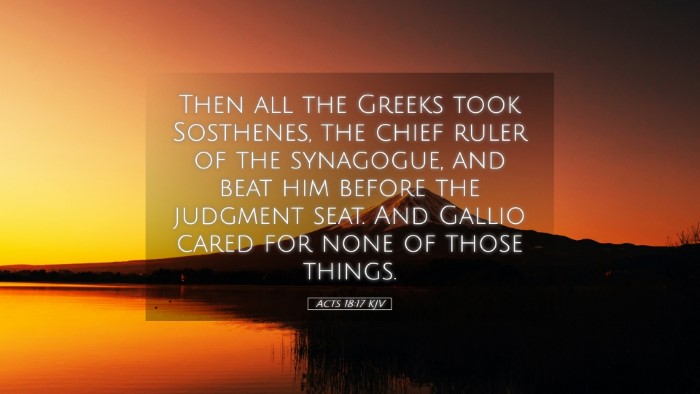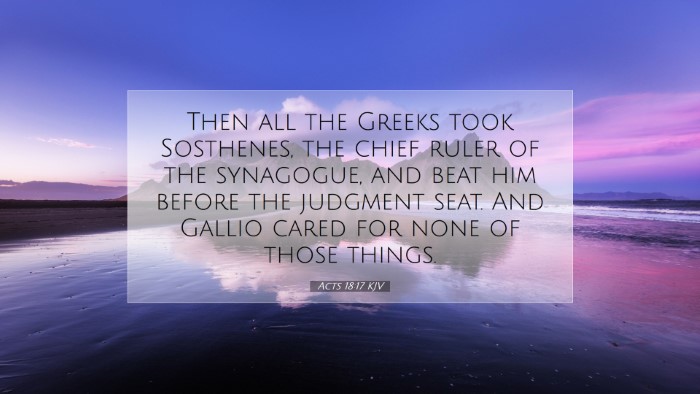Commentary on Acts 18:17
In Acts 18:17, we encounter a significant moment in the ministry of the Apostle Paul, as well as an important judicial decision concerning the early Church and its relationship with the Greco-Roman society. This verse reads:
“And he (Gallio) drove them from the judgment seat.”
Contextual Overview
This event occurs during Paul's second missionary journey, primarily in Corinth, where he encounters both resistance and support for the Gospel. Paul, along with Silas and Timothy, had been preaching fervently about Jesus Christ, leading to both conversions and conflict.
Summary of Commentaries
Matthew Henry's Commentary
Matthew Henry emphasizes the providence of God in the unfolding events, noting that Gallio's indifference to the religious squabbles reflects the divine protection over Paul's mission. He interprets this scene not only as a commentary on civil authority but also as a divine sign that God will ensure the unhindered spread of the Gospel.
- The Role of Gallio: Henry portrays Gallio as a pivotal figure, whose dismissal of the charges against Paul represents a significant moment of legal vindication. The proconsul demonstrates a wise and judicious understanding of the difference between civil and religious matters.
- The Impact on the Church: He points out that this moment provided peace and security for the early Church in Corinth, enabling the believers to grow without the threat of Roman persecution at that time.
Albert Barnes' Notes on the Bible
Albert Barnes elaborates on the legal implications of this judgment. He explains that Gallio's refusal to hear the case signified a crucial moment of grace for the Church, illustrating the distinct separation between secular law and personal beliefs.
- Gallio's Indifference: Barnes notes that Gallio was not unconcerned with justice but rather saw that the disputes were more about Jewish traditions than actual crimes against Roman law. Thus, he considered them matters of little external importance.
- Protection of the Apostles: By his ruling, Gallio effectively provided a protective barrier around Paul and his companions, enabling them to work freely without fear of legal repercussions.
Adam Clarke's Commentary
Adam Clarke focuses on the narrative's theological implications, analyzing the implications of divine providence and the spread of Christianity amid legal challenges. He draws attention to how God uses secular powers to accomplish His divine purposes.
- God's Sovereignty: Clarke highlights that Gallio's actions validate the belief that God can influence even non-believers to protect His ministry and further the Gospel.
- Historical Significance: He provides insight into the historical context, explaining that Gallio is considered an eminent figure, and his indifference to the charges against Paul is a strong statement about the legitimacy of the Christian faith in the eyes of the Roman authority.
Theological Insights
This passage brings forth several theological themes key to understanding early Christian identity:
- Separation of Powers: The verse illustrates an early understanding of the separation of church and state, showcasing that the civil authority does not have jurisdiction over spiritual matters, a concept that carries forward over centuries.
- Divine Providence: Both Barnabas, Henry, and Clarke assert that God's guiding hand is visible throughout the early missions, where He operates through rulers to secure the advancement of the Gospel.
- Encouragement for Believers: The outcome of Gallio's decision served as an encouragement to the early believers that they were not alone, and that divine protection would allow them to fulfill the Great Commission.
Applications for Today
Pastors, students, theologians, and Bible scholars may draw vital lessons from this passage about the interaction between faith and the secular world:
- Courage in Confrontation: Believers are encouraged to face opposition with courage, knowing that God can influence circumstances in their favor despite significant challenges.
- Understanding Authority: The passage challenges Christians to navigate their lives within the secular legal systems while holding to the truths of their faith. It demonstrates that there are times when faith and government intersect beneficially.
- Confidence in God's Plan: This text serves as a reminder that God is sovereign over all earthly authorities, encouraging believers to trust in His overarching plan for the Church’s growth and mission.
Conclusion
Acts 18:17 serves as a powerful testament to the early Church's resilience and the divine orchestration behind its mission. By blending insights from public domain commentaries, we can appreciate how this encounter between Paul and Gallio illustrates key aspects of God's providence, the nature of authority, and the ongoing relevance of these early scriptural events to contemporary Christian life and thought.


